 As we celebrate the holidays and get set to close the books on 2011 — a banner year for the CCC Blog, with more than twice as many page views as in any previous year — we thought we would take a quick look back at some of the most popular topics on the Blog in the past year. After the jump, a rundown of our 10 most viewed posts since January 1 (not handicapped by date):
As we celebrate the holidays and get set to close the books on 2011 — a banner year for the CCC Blog, with more than twice as many page views as in any previous year — we thought we would take a quick look back at some of the most popular topics on the Blog in the past year. After the jump, a rundown of our 10 most viewed posts since January 1 (not handicapped by date):
10. Watson’s Lead Developer: “Deep analysis, speed, and results”, June 7
![David Ferrucci, IBM [image courtesy IBM] David Ferrucci, IBM [image courtesy IBM]](https://cccblog.org/wp-content/uploads/2011/06/img-video-david-ferruci-300x261.jpg) David Ferrucci’s official title is “IBM Fellow and Leader of the Semantic Analysis and Integration Department at IBM’s T.J. Watson Research Center.” But to the world, he’s the genius behind Watson, the question-answering supercomputer system that bested two humans in a nationally televised broadcast of the popular game show Jeopardy! earlier this year. And not just any two humans, but the two very best players in the show’s 27-year history. On Monday, Ferrucci delivered a fantastic keynote at the ACM’s 2011 Federated Computing Research Conference in San Jose, CA.
David Ferrucci’s official title is “IBM Fellow and Leader of the Semantic Analysis and Integration Department at IBM’s T.J. Watson Research Center.” But to the world, he’s the genius behind Watson, the question-answering supercomputer system that bested two humans in a nationally televised broadcast of the popular game show Jeopardy! earlier this year. And not just any two humans, but the two very best players in the show’s 27-year history. On Monday, Ferrucci delivered a fantastic keynote at the ACM’s 2011 Federated Computing Research Conference in San Jose, CA.
—
9. CNBC.com’s “10 Products That Changed the World” — and 9 Are CS-Related!, April 30
Yesterday, CNBC.com published a slideshow of 10 products and companies that have changed the world. Calling them “game-changing disruptions,” CNBC.com reported:
It takes a lot to shift the course of an industry. For every truly disruptive company, there are dozens that try and fail — and plenty of copycats that follow, but fall short of the new model.
Being disruptive doesn’t always mean being first to the market with an idea. It’s about executing it better than any competitor — and staying ahead of the curve from there.
—
8. First Person: “Life as a NSF Program Director”, August 29
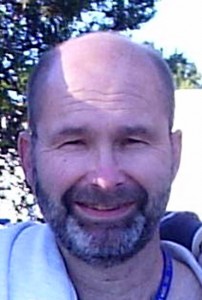 In a special contribution, Doug Fisher, Associate Professor of Computer Science and Computer Engineering at Vanderbilt University, describes something of his life as a NSF PD so that others can judge whether it might be something they would like to try. From July 2007 to August 2010, Doug served as a Program Director in the Division of Information and Intelligent Systems (IIS) within NSF’s CISE Directorate.
In a special contribution, Doug Fisher, Associate Professor of Computer Science and Computer Engineering at Vanderbilt University, describes something of his life as a NSF PD so that others can judge whether it might be something they would like to try. From July 2007 to August 2010, Doug served as a Program Director in the Division of Information and Intelligent Systems (IIS) within NSF’s CISE Directorate.
In November 2006, I received a call from a colleague suggesting I apply for a PD opening at NSF. Prior to his call, I had determined to reorient my research in machine learning towards environmental applications. It didn’t take long to decide that NSF would be much more a retooling for, rather than a distraction from, this new direction.
—
7. “Data and the Compute-Driven Transformation of Modern Science”, March 10
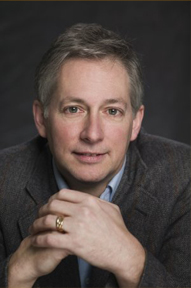 Ed Seidel, NSF’s Assistant Director for Mathematical and Physical Sciencesand formerly the Director of the Foundation’s Office of Cyberinfrastructure, today delivered a presentation at Northwestern University on “Data and the Compute-Driven Transformation of Modern Science” as part of a quarterly seminar jointly sponsored by the school’s Physics and Astronomy departments. Seidel noted the exponential growth in the last couple of decades in data from scientific experiments and simulation, and in the computational power to deal with it, and he emphasized the greater need for collaboration. No longer can science be done with just a single professor working with just a couple of students. “Software is the Modern Language of Science.”
Ed Seidel, NSF’s Assistant Director for Mathematical and Physical Sciencesand formerly the Director of the Foundation’s Office of Cyberinfrastructure, today delivered a presentation at Northwestern University on “Data and the Compute-Driven Transformation of Modern Science” as part of a quarterly seminar jointly sponsored by the school’s Physics and Astronomy departments. Seidel noted the exponential growth in the last couple of decades in data from scientific experiments and simulation, and in the computational power to deal with it, and he emphasized the greater need for collaboration. No longer can science be done with just a single professor working with just a couple of students. “Software is the Modern Language of Science.”
—
6. Recapping the US Ignite Gigabit Applications Workshop, May 24
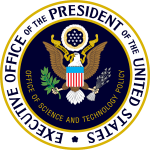
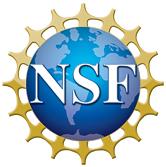 What would you do with a 1 Gbps, layer 2 programmable, sliceable network?
What would you do with a 1 Gbps, layer 2 programmable, sliceable network?
That’s the central question underlying the US Ignite Gigabit Applications Workshop, a daylong meeting co-hosted by the NSF’s CISE Directorate and the White House Office of Science and Technology Policy (OSTP) early last week. The workshop — supported by several other Federal agencies as well as a number of public and private partners — brought together over 80 individuals from colleges/universities, for-profit companies, non-profit organizations, and Federal, state, and local governments from across the country.
—
5. National Science Board Talks “Big Data”, March 29
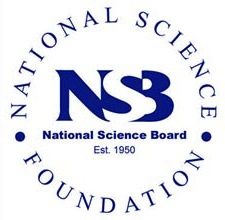 The National Science Board (NSB) held an Expert Panel Discussion on Data Policies at the National Science Foundation yesterday & today, exploring the opportunities and challenges of a future rooted in data-intensive science and engineering. Organized by the NSB’s Task Force on Data Policies, the meeting included leading figures in the scientific enterprise across the U.S., the U.K., and Germany. A key goal was to identify guiding principles for establishing policies on data and artifacts (such as codes).
The National Science Board (NSB) held an Expert Panel Discussion on Data Policies at the National Science Foundation yesterday & today, exploring the opportunities and challenges of a future rooted in data-intensive science and engineering. Organized by the NSB’s Task Force on Data Policies, the meeting included leading figures in the scientific enterprise across the U.S., the U.K., and Germany. A key goal was to identify guiding principles for establishing policies on data and artifacts (such as codes).
—
4. “Outrageous Ideas” at CIDR: Seeking to Stimulate Innovative Research Directions, January 18
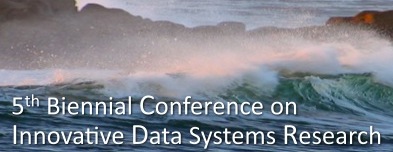 Researchers frequently lament the predictable framework of published papers. The constraints of a rigorous review process discriminate against unconventional work and ideas that are innovative but not yet fully worked out. As part of its mission to identify major new research opportunities, the CCC is sponsoring a series of “wacky ideas” sessions at several conferences. The goal of these sessions is to break free of the shackles of the normal reviewing process while still requiring a paper. In this way, the “wacky idea” sessions differ from a “midnight session” of informal talks, in that the paper allows the ideas presented to be more broadly accessible.
Researchers frequently lament the predictable framework of published papers. The constraints of a rigorous review process discriminate against unconventional work and ideas that are innovative but not yet fully worked out. As part of its mission to identify major new research opportunities, the CCC is sponsoring a series of “wacky ideas” sessions at several conferences. The goal of these sessions is to break free of the shackles of the normal reviewing process while still requiring a paper. In this way, the “wacky idea” sessions differ from a “midnight session” of informal talks, in that the paper allows the ideas presented to be more broadly accessible.
—
3. Toward an Open mHealth Ecosystem, April 26

 In a special contribution, Deborah Estrin, Professor of Computer Science and Founding Director of the NSF-funded Center for Embedded Networked Sensing (CENS) at UCLA, and Ida Sim, Associate Professor and Director of the Center for Clinical and Translational Informatics (CCTI) at UCSF, describe an Open mHealth Summit they co-organized.
In a special contribution, Deborah Estrin, Professor of Computer Science and Founding Director of the NSF-funded Center for Embedded Networked Sensing (CENS) at UCLA, and Ida Sim, Associate Professor and Director of the Center for Clinical and Translational Informatics (CCTI) at UCSF, describe an Open mHealth Summit they co-organized.
Mobile health (mHealth) has the potential to transform the nature and reach of health care activities; however an increasing concern is that proliferating independent mHealth apps are emerging highly siloed with limited data sharing and limited interoperability. Such a stovepipe approach threatens to fundamentally limit the power and potential of mHealth.
On April 14th and 15th, a group of ~45 experts from diverse areas in health sciences and information technologies met to discuss how to bring about an open mHealth ecosystem…
—
2. An Online AI Course, July 30
![Stanford's "Introduction to Artificial Intelligence" course goes online this fall [image courtesy ai-class.com]. Stanford's "Introduction to Artificial Intelligence" course goes online this fall [image courtesy ai-class.com].](https://cccblog.org/wp-content/uploads/2011/07/artificial_intelligence_header.jpeg) This fall, our colleagues Sebastian Thrun and Peter Norvig are offering a free, online version of their popular Stanford University course,“Introduction to Artificial Intelligence”:
This fall, our colleagues Sebastian Thrun and Peter Norvig are offering a free, online version of their popular Stanford University course,“Introduction to Artificial Intelligence”:
A syllabus and more informationabout the Stanford course is here…
The class runs from Sept 26 through Dec 16, 2011. While this class is being offered online, it is also taught at Stanford University, where it continues to be a popular intro-level class on AI. For the online version, the instructors aim to offer identical materials, assignments, and exams, and to use the same grading criteria. Both instructors will be available for online discussions.
A high speed internet connection is recommended as most of the course content will be video based. Access to a copy of Artificial Intelligence: A Modern Approach is also suggested.
—
1. Akamai Chief Scientist Talks Theory, June 10
Over the past few weeks, we’ve been highlighting on this blog several of the excellent talks from the “Computation and the Transformation of Practically Everything” symposium held at MIT earlier this year. The symposium — part of MIT’s 150th anniversary celebration — described how computer science is changing the world.
This week, we showcase another talk, this one by Tom Leighton, the Co-Founder and Chief Scientist of Akamai Technologies — a global leader in web acceleration and performance — and a Professor of Applied Mathematics at MIT. Leighton described the history of theoretical computer science, including key advances like the RSA encryption protocol, the Viterbi algorithm (which is used today in cell phones, digital TVs, etc., and led to the creation of Qualcomm), linear programming (which was invented during World War II to optimize military planning), Google’s PageRank algorithm, and Akamai’s content delivery network.
—
Many thanks to all of you for bookmarking the CCC Blog and checking it periodically. (A reminder: if you have feedback, please post a comment below or simply e-mail me.) And thanks as well to all our special contributors throughout the year, who have taken time to describe their experiences, summarize workshops or conferences they have organized or attended, and shared valuable thoughts about challenges and opportunities in their subfields of computing.
Here’s to 2011! And from all of us at the CCC, best wishes for a very happy, safe holiday season to you and yours!
(Contributed by Erwin Gianchandani, CCC Director)









